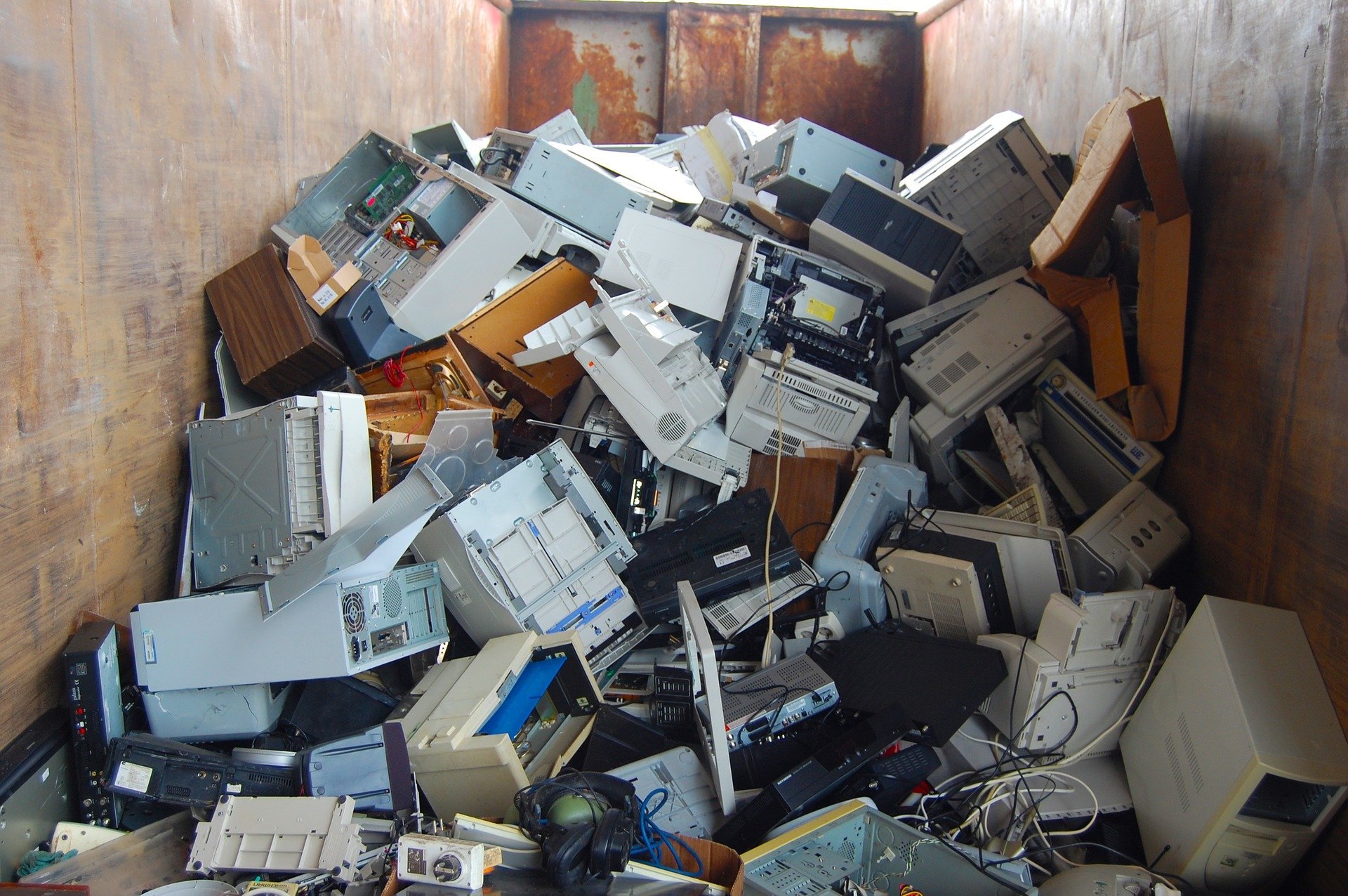As our world becomes more and more reliant on electronic devices for day to day life, the recycling of those that are no longer the latest model is imperative. As a society, we must protect our nation and world from the terrible effects that we are witnessing as these dangerous chemicals are filling our landfills and being illegally exported to developing countries (see article).
One might think that the US is up to par with other developed countries when it comes to e-recycling, but we are far from leading the way. The US must pass binding regulations that make it next to impossible to thwart the system. Why is it so tough to pass e-waste legislation?
“Awareness is definitely a major challenge,” explains New York Democratic congressman Espaillat. “When I speak to some members, they don’t have the slightest idea what this is about.”
Education of politicians and citizens is also key, adds Espaillat. Yet recycling struggles to be a ratings grabber. “Waste management is not a sexy issue to talk about on the seven o’clock news,” he says. “But as more reports come out, I think it’s going to become more of a common-sense issue for members of Congress.”
Those millions of old motherboards and TVs consoles rotting in landfills and warehouses aren’t just eyesores. They amount to a massive health hazard. While electronics waste comprises only 2-3 percent of America’s solid waste stream, the lead, cadmium, chromium, and other materials in aging circuitry account for 70 percent of the hazardous material in landfills, according to an EPA report.
The Basel agreement — designed to track and reduce the movement of hazardous waste between developed and developing nations — entered into force in 1992. As of late 2018, 186 states and the European Union have ratified it and follow its legal framework. The United States has signed the Basel Convention, indicating an intent to ratify, but is the only developed nation that hasn’t actually done so!
“Almost every environmental treaty created in recent years because the world has said ‘We need this to move forward,’ the U.S. is outside and we’re really looking like a renegade country when it comes to the environment,” says Puckett. “We’re a rogue country and that’s how the world sees us.”
Theoretically, all of the countries who are a party to the existing treaties should be disallowing shipping containers brimming with hazardous e-waste from the United States, but corruption, intentional mislabeling, and lax prosecution make it possible. Since China stopped accepting many recyclables from the U.S., including e-waste, other countries in southeast Asia have stepped in to grab a piece of this toxic business. Claire Arkin, a spokesperson for the Global Alliance for Incinerator Alternatives, says villages in Indonesia, Thailand, and Malaysia have turned into dumpsites for e-waste and plastic in the year or so since.
At the federal level, EPA regulations require businesses to properly dispose of and recycle electronic goods, but they don’t go into great detail about what is and isn’t legal.
What can someone do now since the US government has not created stringent laws to address this urgent issue? There are many e-recyclers out there, but the industry needs to be checked more carefully. Many seemingly legit scrap haulers may have green leaves slapped on the side of their trucks and advertise environmentally friendly solutions while still dumping their stockpiles in landfills or overseas. Overall, recycling in the U.S. is relatively bad. Of the top 25 recycling countries in the world, the U.S. is 25th, according to a 2017 report developed by the environmental consultancy Eunomia. The same report also notes that European countries typically recycle 30 percent of their plastic waste while the U.S. only manages to recycle nine. (A large part of e-waste is plastic.)
In the absence of comprehensive U.S. e-waste legislation, several NGOs have stepped in to create frameworks for “certifying” the work of recyclers, most notably R2 and e-Stewards.
The ISRI rep also downplays the concern about sending e-waste from the United States to the developing world, quoting it at less than 1 percent of all e-scrap exports. (A 2016 study by the Basel Action Network using GPS trackers placed in old electronics found that 40 percent of U.S. e-waste is exported with 93 percent of it going to the developing world.) Does the ISRI rep think any legislation or regulations should be put in place to stop the environmental hazards created by consumer e-waste? “I’m a person who believes more in the carrot than the stick,” responds Johnson. “If you tell people why it’s important, people generally want to recycle and do the right thing. If you make it convenient for them, they’ll do it.”
Here are some other ways that you can be an agent for positive change for e-waste;
- The next time you want to purchase a new computer, laptop or printer, check out the government’s EPEAT Registry, which lists eco-friendly tech choices.
- Want to show your support for the “Secure E-Waste and Recycling Act”? Consider calling the office of one of the sponsors (Congressman Espaillat, 202-225-4365; Congressman Cook, 202-225-5861).
- In November of 2019, Amazon.com set up a test of electronics collection bins at Amazon Locker locations in 10 U.S. cities, including Austin, Chicago, Columbus, Seattle, and Pittsburgh. Use the boxes and leave feedback about the program on the e-tailers’ Second Chance page. Staples and Best Buy offer similar free electronics recycling programs.
- Have a piece (or an entire office-full) of technology you want to recycle? Make sure the processor you hand it to is approved by R2 or e-Stewards.
If you have excess electronic components, don’t just throw them away. AERI offers many different excess inventory solutions to make your job easy. Please contact one of our Search Experts by email; USA [email protected], Asia [email protected], or Europe [email protected]
Digital Trends (2020, February 27). The United States has a colossal e-waste problem. This is why [Blog post]. Retrieved from https://www.digitaltrends.com/cool-tech/e-waste-recycling-united-states/
Robb Hammond is the President of AERI and the former chair of the Aerospace Industry’s Counterfeit Electronic Components Mitigation Standard for independent distributors, AS6081, which has become one of the industry’s most respected documents, as well as being adopted by the Department of Defense. Robb is one of the foremost thought leaders in the industry on counterfeit detection and speaks regularly at conferences around the globe.



